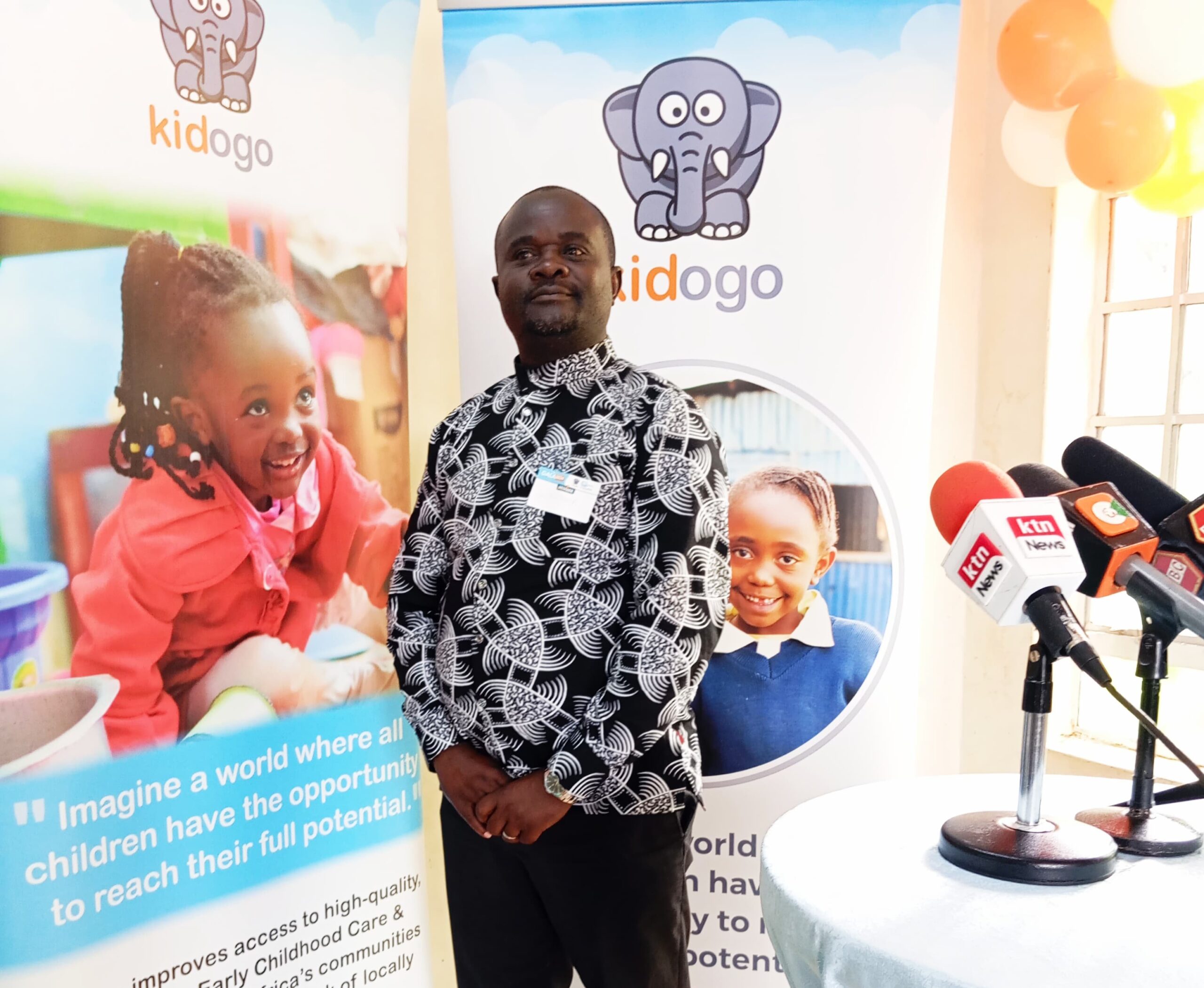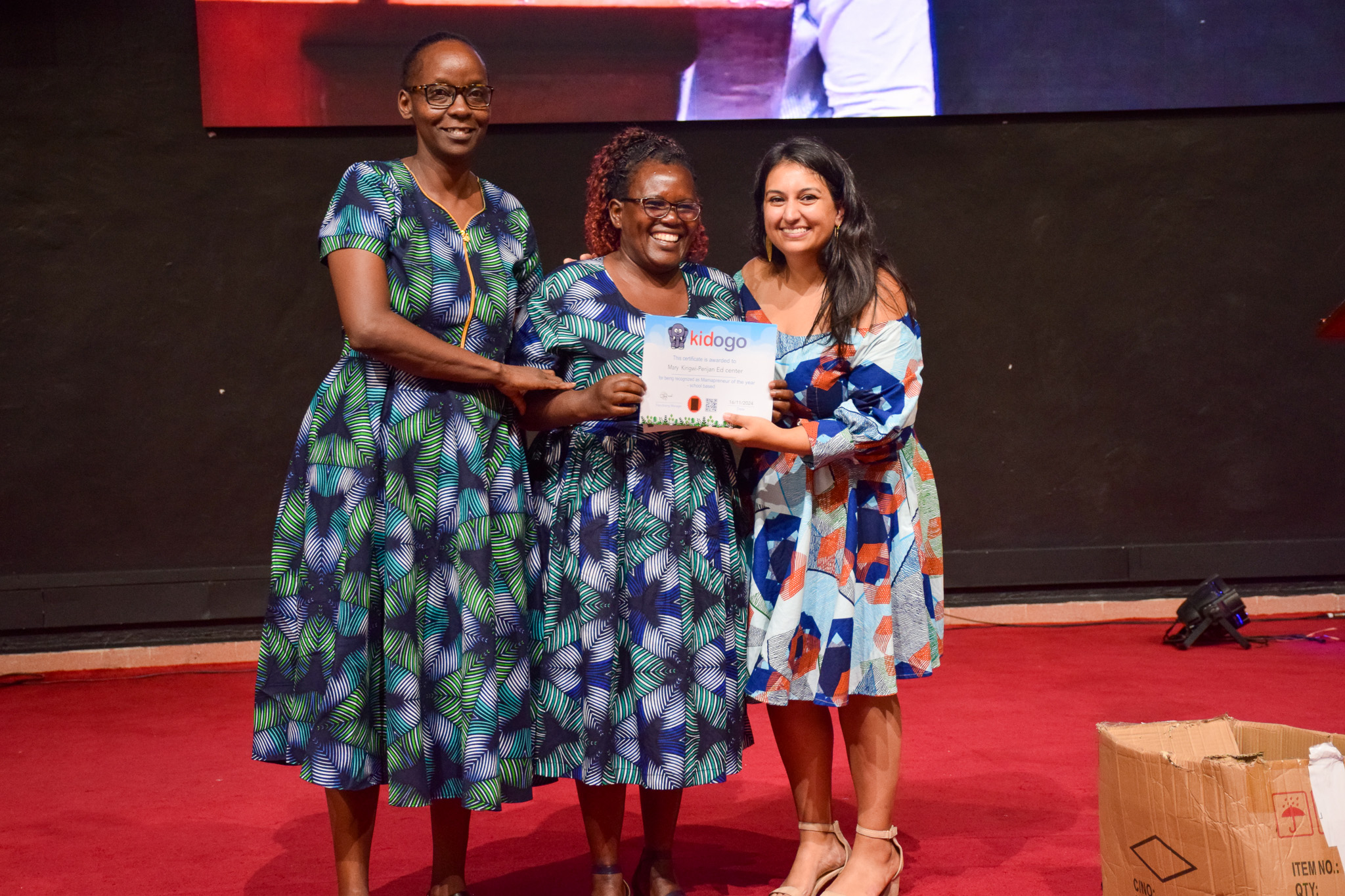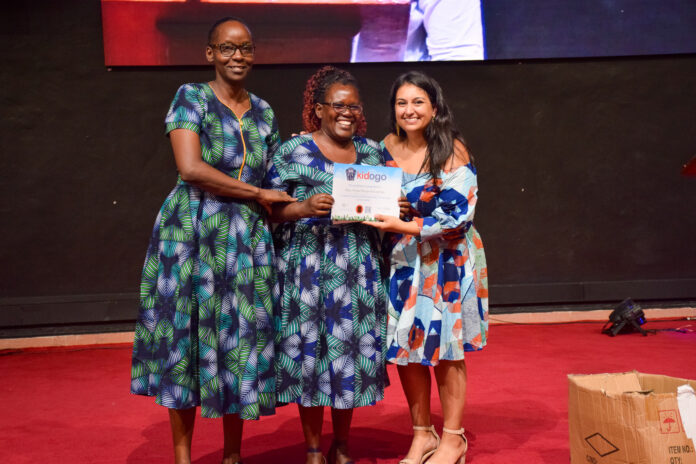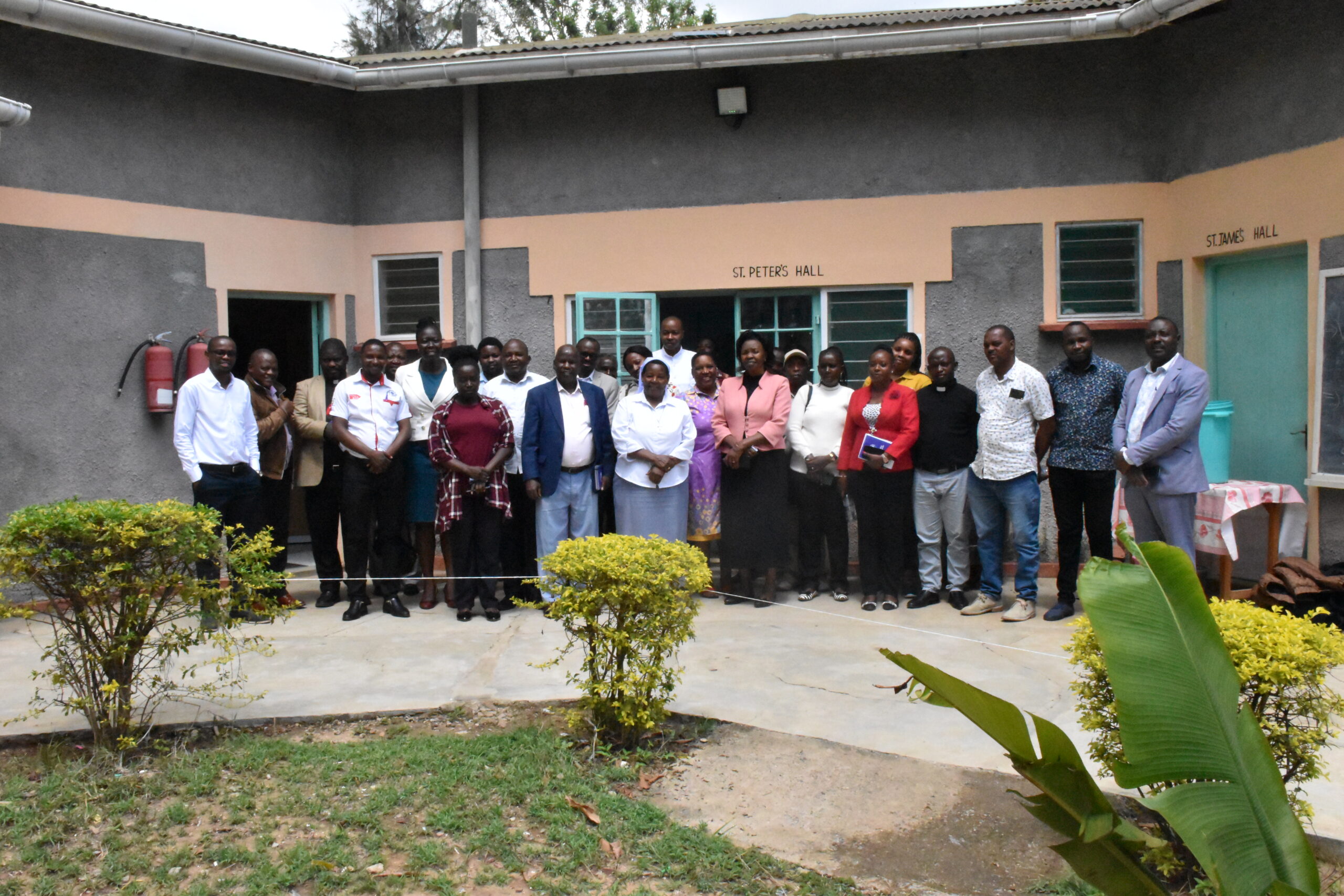|
Getting your Trinity Audio player ready...
|
By Melisa Mong’ina
Nairobi, Kenya: In the heart of Kayole, Matopeni, an informal settlement area located East of Nairobi, in Kenya. Children can now breathe a sigh of relief. Their parents can now access affordable quality child care through the help of a social enterprise organization, Kidogo, that works closely with local communities to improve the lives of the youngest members of society.
For years, families in Kayole struggled to find safe and nurturing environments for their children, often forced to leave them unsupervised or in inadequate care while they worked long hours trying to provide for them and ensuring that they had something to eat. Kidogo is now transforming lives by providing quality education and childcare development.
Kayole, a densely populated area in Nairobi County, is home to tens of thousands of residents. While precise current figures for Kayole are unavailable, the 2019 Kenya Population and Housing Census reported Nairobi County’s total population at 4,397,073. Of this, regions like Kayole and surrounding Eastland neighborhoods contribute significantly due to their high population densities.
Kidogo’s services go beyond just daycare; they offer a comprehensive package aimed at holistic development. They provide early childhood education, nutritious meals for the children, training caregivers, especially on financial literacy and entrepreneurship, and also advise parents on how to care for their children at home. Global Mind Education Center located in the East of Nairobi, Kayole, Matopeni is among the many beneficiaries of Kidogo.
Speaking to Talk Africa, Augustine Wanyama, Director of Global Mind Education Center, shared that his center provides daycare services for children aged 8 months to 3 years, addressing some of the challenges mothers face leaving children at home to venture for daily necessities. This motivated him to start a daycare at his school.

“At our school, we’ve got a daycare where children aged 8 months to 3 years are well cared for. Having a school in the informal settlements is very challenging because most of the children are left in their houses to care for their siblings while their parents go to work. So as a school, we decided to have a daycare to curb this problem. This enabled the older children to continue with their education while the younger ones were being cared for at the daycare,” noted Wanyama.
The training taught the school about the capabilities of young children and the importance of early education and nutrition. There have been significant improvements in the children’s health and development, due to the knowledge gained from Kidogo.
“The training has been so smooth and we were able to learn the different capabilities of these children. We also learned about nutrition, most parents were unable to provide balanced meals for their children but Kidogo was able to train us on that and also provided nutritious meals for the children. This improved their health thus making parents happy,” shared Wanyama.
One of the main challenges he faced was convincing parents to adopt the new practices gained from Kidogo, as some parents were resistant to change. Despite all that, the school managed to renovate and construct new facilities with Kidogo’s help, and he witnessed countless improvements in the children’s health and nutrition, with parents willing to follow the recommended practices.
“Telling parents to buy the same idea we gained from Kidogo was quite a challenge because most of them believed in their cultural practices, especially when it came to balanced diets. We also had challenges with our facilities. The environment was not that conducive but through Kidogo the children’s environment became conducive and parents were now willing to follow our regulations,” he added.
His school has employed two dedicated staff members called “Mama Watoto” who care for these children, ensuring their health and safety. The staff checks children’s temperatures, advises parents on nutrition, and teaches children about hygiene.
“We changed the name of teachers handling those children to “Mama Watoto” because I felt like if they are called teachers they will only focus on teaching but if they are called “Mama Watoto” they will handle the children like their own. They often care for them by checking their temperature and ensuring that they are well fed,” said Wanyama.
Wanyama advised men interested in taking care of children to go ahead and start such initiatives, regardless of their background, emphasizing that with dedication and the right support, it is possible to provide quality daycare services even in challenging environments.
“Once you have got a passion to care for children, you can do it regardless of the challenges you face. When I began, I wasn’t aware of Kidogo, but today I celebrate with them. So if you are a man outside there, and you have got maybe a school, or you wish to have a daycare, go forth and embrace the idea and God will ensure that you are doing the right thing,” he urged.
Kidogo doesn’t just provide a place for children; it fosters community, ensuring that parents/guardians feel empowered and involved. King David Education Center located in Molem, Kangundo Road, Nairobi, is also part of its beneficiaries. Their services have brought hope in the area thus enabling children to have a bright future.
Christine Kavosi, Director of King David Education Center, shared that she was encouraged by a friend to join Kidogo and was inspired by the free porridge and eggs provided to the children. She highlighted the positive impact of these provisions on both children and parents, noting the improved school environment.
“I was introduced to Kidogo by my friends, and what inspired me was the provisions that Kidogo was giving children. The parents were happy to see their children receive free porridge and eggs because most of them find it difficult to provide such at home,” said Kavosi.
She emphasized the importance of a conducive environment for children, which includes clean sleeping spaces, proper hygiene, balanced diets, and adequate care when sick.
“We provide a conducive environment for our children by ensuring that their sleeping spaces are clean, their food is well balanced, their hands are clean after playing or visiting the washrooms, and we also monitor their health each time,” she added.
Kavosi discussed the importance of constant supervision and creating a safe environment free from sharp objects, advising caregivers to talk to children about safety and encouraging them to report any issues. She further stressed the importance of passion and love in caregiving, believing that God will bless those who take good care of children.
“I always urge my colleagues to ensure that the children play in a safe environment away from sharp objects that can harm them and to follow them whenever they play. Caregiving should be done with a lot of love and one should have passion for it. When you take good care of the children, God will always bless you and ensure that you lack nothing in your daycare,” said Kavosi.
Sabrina Habib, Co-Founder and CEO of Kidogo emphasized the organization’s mission to invest in the youngest generation, explaining that children aged zero to three years are often overlooked and are primarily found in childcare centers in the urban informal settlements.
“Kidogo comes from the proverb “chanzo cha makubwa ni kidogo,” which means all great things start small, and if we want to have a thriving community, thriving economy, and a thriving country, then we need to start by investing in the youngest generation, especially those in the informal settlements,” said Habib.
The quality of care in these informal settlements is often poor, with children receiving little stimulation, food, and education, leading to long-term cognitive and physical delays. She emphasized the critical period of brain development in the first three years of life and the need for safe, stimulating, and nutritious experiences for children.
“In our urban informal settlements, these children are often in child care centers or being taken care of in women’s homes, but the quality at many of these centers is not very good. 80% of brain development happens in the first three years of life and these children go to school with cognitive, language, and physical delays. If we provide them with safe, stimulating, and nutritious experiences in their first 1000 days, we can transform the trajectory of their lives,” she noted.

Habib highlighted that the celebration aims to honor the achievements of Mamapreneur/Babapreneur and raise awareness about the importance of childcare. Her goal is to expand to 50,000 Mamapreneurs/ Babapreneurs over the next five years, reaching a million children and making childcare a norm in Kenyan society, emphasizing the potential impact of the million children receiving quality care, which could lead to a generation of future leaders and citizens.
“Currently, we have 2,000 Mamapreneurs and Babapreneurs who are directly reaching 50,000 children, meaning 50,000 mothers can work peacefully, knowing that their children are safe. Our goal over the next five years is to expand to 50,000 Mamapreneurs/Babapreneurs, reaching a million children. Imagine the impact of a million children who have got the right start to life, who grow up and become the citizens of our country or even the future doctors,” highlighted Habib.
She called for the government’s support in creating quality standards, licenses, and financing for the childcare sector, emphasizing the need for their support to reach a million children and make childcare a priority for the next generation. She envisions a future where childcare is valued and recognized as a necessary component of a thriving economy, ensuring quality care for all children.
“We hope to work closely with the government and create quality standards, licenses, and financing for the childcare sector. Let’s make childcare a norm in Kenyan society because until we value childcare as a necessary component of a thriving economy, it will continue to be done in the shadows, but once we value and quantify it, we bring it into the spotlight. If we’re going to reach a million children, we need the government to assist us get there,” said Habib.
Ruth Owuor, City Director of Education for Nairobi City County explained the county’s collaboration with partners to train unregulated daycare providers and form a collaborative action for childcare in Nairobi. The county adopts a multi-sectoral approach involving health, planning, security, and compliance to ensure quality care for children aged zero to five years.
“The first thing we are doing is working very closely with partners to train these Mamapreneurs and Babapreneurs. We also have a multi-sectoral approach which includes health, planning, security, and compliance to ensure proper child care for children aged 0-5 years,” noted Owuor.
Ruth highlighted the governor’s initiative to provide free ECD capitation, allowing children to access ECD centers without fees. She also discussed the Childcare Facilities Act and the draft regulations being developed to regulate the daycare space and address the needs of children with special needs, ensuring they receive appropriate care.
“We provide free ECD for children aged 0-5 years, enabling the parents and guardians to have a breathing space from paying school fees. In the area of policy and regulations, we have a Child Care Facilities Act that was passed in 2017 and right now we have draft regulations that will help the daycare space be regulated and ensure that the children get proper quality care,” highlighted Owuor.














